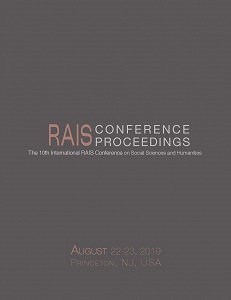The Lack of Decentralization of Data: Barriers, Exclusivity, and Monopoly in Open Data
The Lack of Decentralization of Data: Barriers, Exclusivity, and Monopoly in Open Data
Author(s): Carla Hamida, Amanda Landi
Subject(s): Social development, Social Informatics
Published by: Scientia Moralitas Research Institute
Keywords: centralization; data openness; government; institutions;
Summary/Abstract: Recently, Facebook creator Mark Zuckerberg was on trial for the misuse of personal data. In 2013, the National Security Agency was exposed by Edward Snowden for invading the privacy of inhabitants of the United States by examining personal data. We see in the news examples, like the two just described, of government agencies and private companies being less than truthful about their use of our data. A related issue is that these same government agencies and private companies do not share their own data, and this creates the openness of data problem. Government, academics, and citizens can play a role in making data more open. In the present, there are non-profit organizations that research data openness, such as Open Data Charter, Global Open Data Index, and Open Data Barometer. These organizations have different methods on measuring openness of data, so this leads us to question what does open data mean, how does one measure how open data is and who decides how open should data be, and to what extent society is affected by the availability, or lack of availability, of data. In this paper, we explore these questions with an examination of two of the non-profit organizations that study the open data problem extensively.
Book: Proceedings of the 10th International RAIS Conference on Social Sciences and Humanities
- Page Range: 169-174
- Page Count: 5
- Publication Year: 2018
- Language: English
- Content File-PDF

